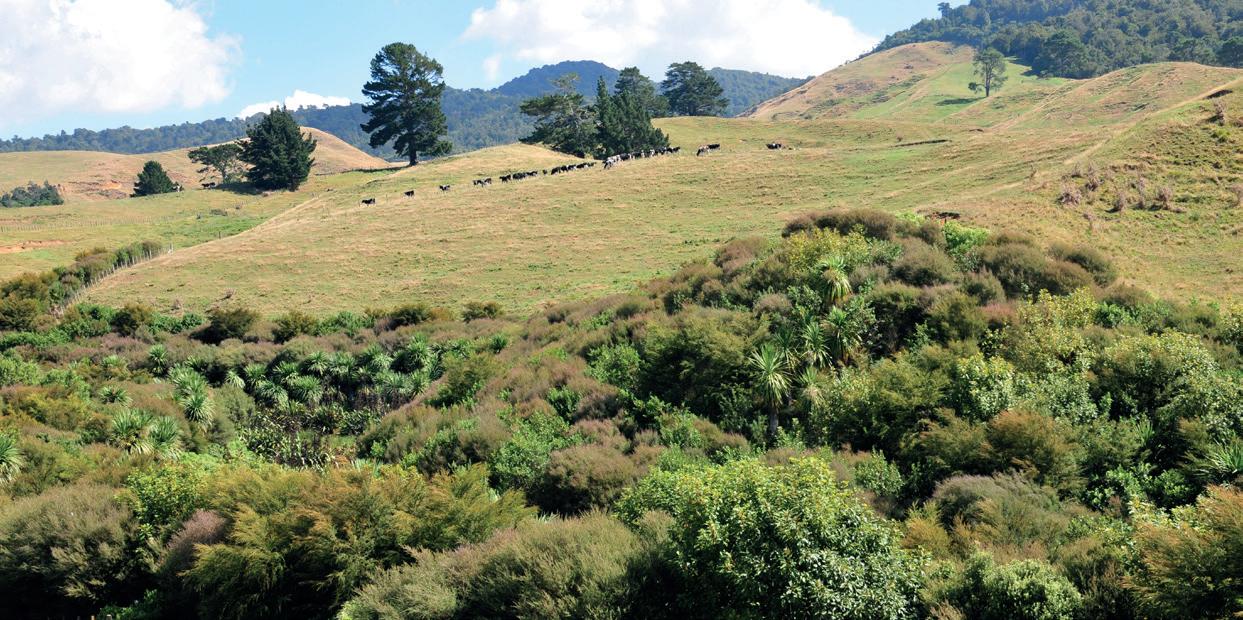
5 minute read
5 minutes with Hugh Good
Beef + Lamb New Zealand Global Market Intelligence and Research Manager
Tell us a bit about your role at B+LNZ?
I look after all the consumer research and insight for our nonNew Zealand export markets.
What is your background, ie How did you get into agriculture product research?
I have a Masters in psychology but spent 13 years in market research and consumer insight prior to joining B+LNZ.
What do you enjoy most about the work you do?
Finding actionable insights that can inform our strategy in market and drive engagement with B+LNZ. What I get the most buzz from however is identifying insights we can use to increase the value of New Zealand beef and lamb globally. Bringing our overseas customers, ‘conscious foodies’, to life for farmers at events is a bit of a buzz too. Many of them never get to see who experiences and enjoys their product, so that’s pretty compelling when you can show them.
Other than regenerative agriculture, tell us about other emerging trends in the agriculture space and how might these shape the future of New Zealand ag exports?
There are a lot of trends, some of which will be pretty challenging to our product, especially from plant analogues, fermentation technology and looking further out, cell-based cultures. But there are even more exciting opportunities. We did a report – Shaping the Future of New Zealand’s Red Meat Sector – which ties some of them together and looks at how they will affect the sector. It was this report that identified the emerging trend around regenerative agriculture and led to our further research in this area.
What research findings have surprised you most in your time doing NZ primary product export market research?
That’s a tough one. I think the findings that people find most difficult to accept is that we’re very self-oriented and self-focused, regardless of what generation you’re in, when it comes to food. Before you start engaging people around higher order food attributes, e.g. environment or animal welfare, you need to meet the basic needs around taste, price and health. No one finishes a meal exclaiming ‘Boy, that was sustainable!’ That’s a challenge for regen as you need to ensure the basic needs are met, not compromised on and ideally enhanced, before you can start talking environmental sustainability. It’s an obvious point but people aren’t going to buy regeneratively produced food if it doesn’t taste any good (and I’m not saying it won’t).
Why do you feel this kind of research work is important and how do you feel that it helps Kiwi farmers?
I believe we need to be customer oriented to win in the future. Being product oriented has served us well to date and we’re super-efficient producers and have a great product. But for the industry to be successful
and ensure consumers both choose us and most importantly, pay more for what we produce in the future, we’ve got to understand them, what they want and how to position and promote to them what we do so well at point of sale. That link between consumer and farmer is super critical. I think if we all reflect on our own preferences, the products that end up in our shopping trolley are the ones that are well produced and communicate the attributes that align with our values. That’s no accident. It’s a result of time spent understanding the customer, what they want and what they’re prepared to pay more for. Other countries are doing this and in some instances have been ahead of us in their understanding of the same customers we’re going after and how they communicate with them. It’s important we both keep up but beat them in market to ensure NZ farmers get what they deserve for their high-quality products.
Do you think Kiwi farmers are more interested in what consumers are asking for globally now and adapting their practices accordingly, compared with say 10 or 20 years ago? If so how ie.`
Things have changed less than you might think. Consumers are still after tasty, well priced food that’s good for them. However, the big change is where they’re seeing the impact of environmental issues, the big one being climate change. Taste is still number one and I think it will still continue to be so but people will be less tolerant in future of food being produced that has a negative impact on the planet – and as we’re one of the most efficient, sustainable producers on the planet, I think we have a real opportunity to dial into this trend. Parts of the regen study I’ve been doing might be a vehicle for this.
You've been busy recently researching the global potential of regenerative agriculture, how did that come about?
We did a study on the future of the red meat sector at the end of 2019, which showed one of the emergent themes was regenerative agriculture and the research was suggesting that this and the way in which food is produced was becoming more important to consumers. We also do social media monitoring and we work with a company that tracks lots of terms and keywords for us in our key markets. They were telling us that ‘regen’ was growing and kind of unusually so. So the future of the red meat report, combined with what our digital partners were reporting to us, led us to investigate regenerative agriculture more closely.
What enabled you to take this further and when did this research kick off?
We met with the Ministry for Primary Industries (MPI) and similarly it was on their radar as well and they were willing to part fund it ($390,000). We also had conversations with the Bragato Research Institute, who work with New Zealand Wine and it was on their radar too. They were interested in the potential market opportunities available to the producers of regeneratively produced wine. It’s not just a sheep and beef thing, we wanted to get another sector involved and it’s the first time that we have worked with the Bragato Research Institute, so that’s pretty exciting for us.

What markets are the most vital in terms of primary produce export, or at least the ones you chose to focus on, in terms of how consumers feel about regenerative agriculture?
So the funding from MPI allowed us to focus on three core markets which were the United States, the United Kingdom and Germany. They were selected because they are leading export markets for New Zealandmade red meat products and also because that’s where a lot of the social media mentions of regenerative agriculture have been happening.










